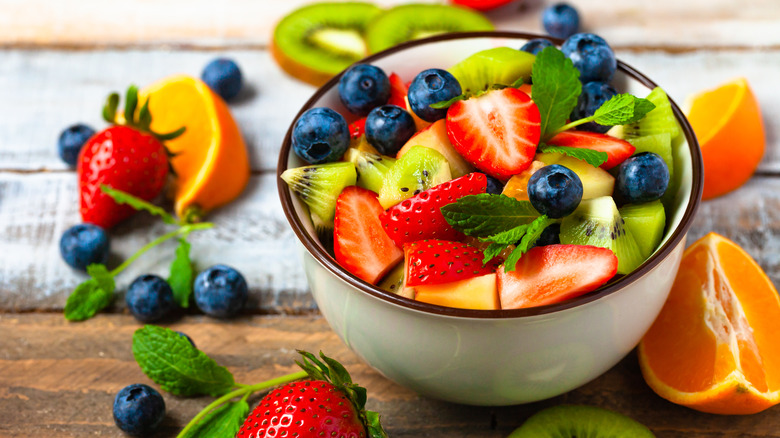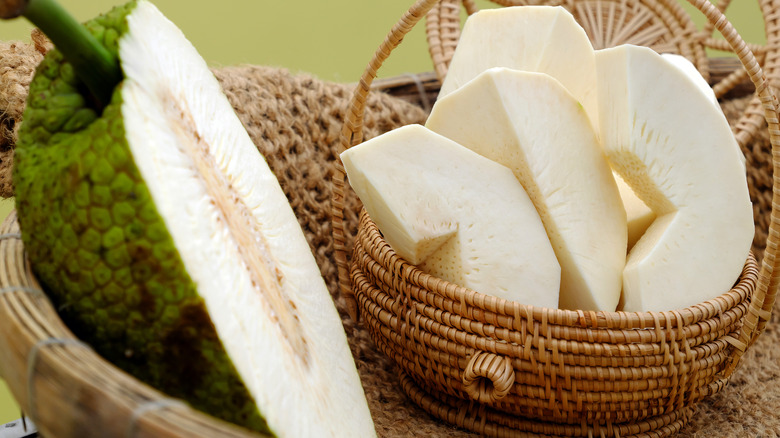This Fruit Contains The Highest Amount Of Carbs Per Cup
There seems to be an ongoing debate in the diet world — how much fruit should we be eating? Isn't it healthy and chock-full of vitamins and antioxidants? Isn't fruit low in fat and calories? Or is it too high in sugar? Should you cut all fruit out if you're eating low-carb? Any fan of the keto diet, or any drastically low-carb way of eating, will probably answer yes to at least the latter two, but what about the rest of us?
Not all fruits are created equal when it comes to carbohydrate and sugar content. In fact, there is a pretty large variance among different types of fruit, according to Healthline, which depends on a lot of factors like water and fiber content and the typical amount you consume in a serving (does anyone ever really only eat ½ cup of watermelon at a time?). If you are watching your carb intake, there are a few fruits you want to be wary of and possibly avoid altogether.
The fruit with the most carbs
Tropical fresh fruits tend to reign supreme in terms of carb content (via Healthfully). A cup of everyone's favorite grab-and-go snack, the banana, contains about 30 grams of net carbohydrates (the amount of carbs left over after you subtract the fiber content). A cup of mango comes in at 22 grams and pineapple is close behind with 19 grams per cup. But the most carb-heavy fruit is the breadfruit. Hailing from the South Pacific, it has nearly 60 grams of net carbs per cup.
A large, prickly oval-shaped fruit weighing between seven and 12 pounds, per HowStuffWorks, breadfruit has been lauded as having a taste like — you guessed it — bread. It is a versatile fruit able to be enjoyed across all stages of ripeness. Those who have sampled it in its early days describe it as starchy and similar to artichoke, an appropriate substitute for pasta or potato. Riper breadfruit is better suited for desserts, with its creamy texture and sweet flavor.
What fruit comes in on the low end of the carb count spectrum? The Diet Doctor touts berries as a safe bet for those watching their carb consumption — particularly raspberries and blackberries with five grams net carbs per 100 grams (about three handfuls). Strawberries contain only slightly more, with six grams of net carbs for the serving. Out of the berry bunch, blueberries come in at the higher end with 12 net grams per 100 grams, though still lower than most other fruit.

